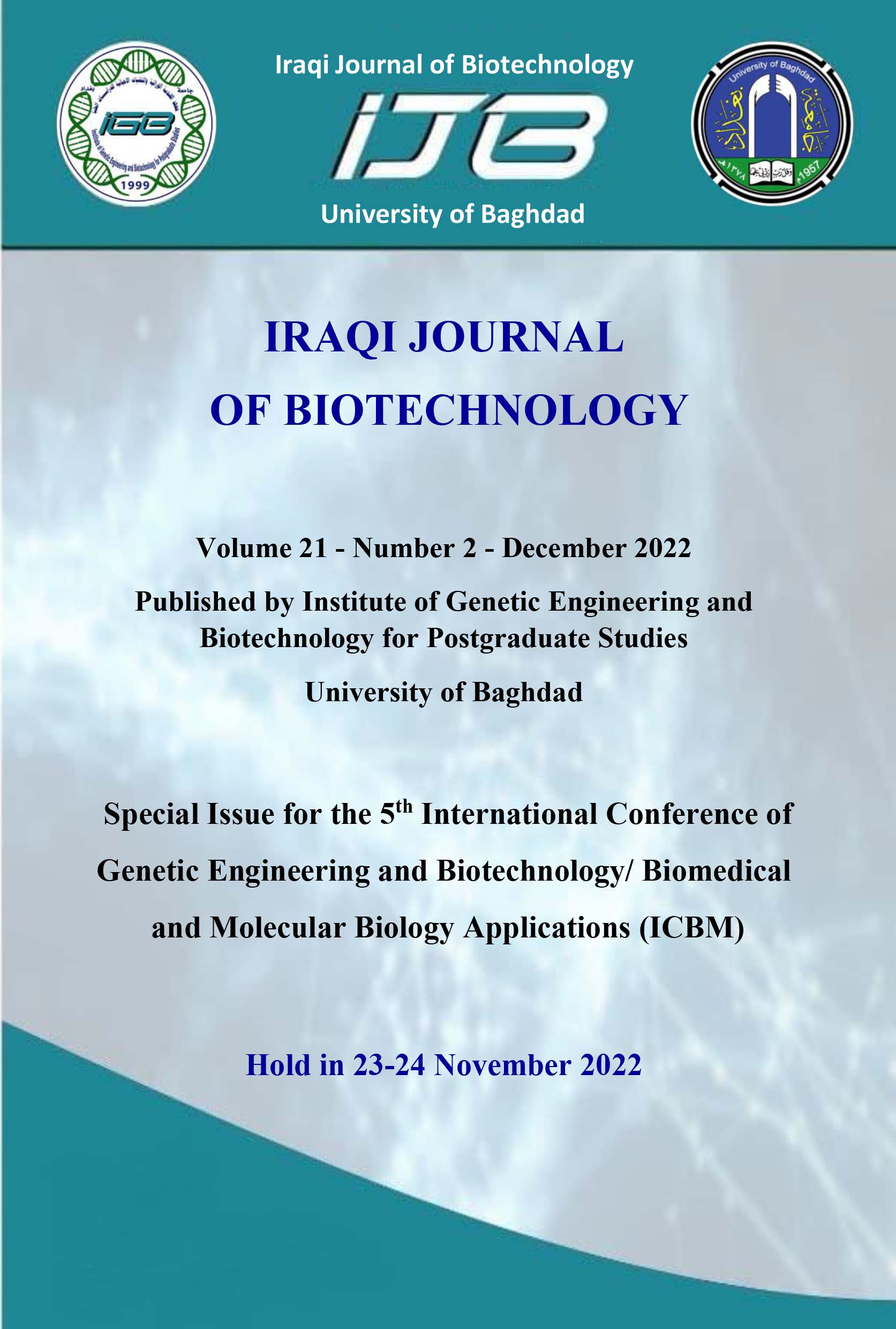Genetic Identifications for Sample of Multiple Sclerosis Iraqi Patients
Abstract
Multiple sclerosis (MS) is an inflammatory condition that affects central nervous system (CNS) causing neurological dysfunction; T cell immunoglobulin and mucin domain -3(TIM-3 ) is a transmembrane protein which widely expressed on the surface of many immune cells including macrophages and T helper cell (Th)1 that regulates T cell responses. This study was planned to examine the relationship between multiple sclerosis and genetic and demographic aspects, using statistical analysis and genetic techniques. Blood samples were collected from fifty of multiple sclerosis patients (Men and women) with age ranged between 20-57 years, in comparison with fifty of apparently healthy volunteers as a control group. Information for demographic study was taken from patients according to a questionnaire that included, name, gender, age treatments, family history for MS and other autoimmune disease. Through the molecular study, DNA was extracted by using the genomic isolation kit, then subjected to Taq-Polymerase Chain Reaction (Taq-PCR). PCR analysis by using pair of primers and pair of probes. The results of the demographic study revealed that the highest number of MS patients located at the age group (30-39) represented 26(52%) of the total number with significant difference (P≤ 0.05). The females constituted 30(60%) more than males 20 (40%) with the high significant (P≤ 0.01). The distribution of MS according to MS family history revealed that 7(14%) of patients had MS family history, whilst 43(86%) hadn't with a high significant (P≤ 0.01). Moreover, the distribution MS patients regarding to other autoimmune diseases family history showed 2(4%) of patients had autoimmune diseases family history, while 48(96%) hadn't. Also, distribution of MS patients according to treatment, showed that Betaferon medication had the highest percentage 18(36%), followed by Retuximab 15(30%), Jelinya 12(24%), and Tysabri 5(10%) patients. The results of genetic study for TIM-3 (rs10515746) genotyping clarified that wild genotype AA was 4(8%),heterogeneous genotype AC was 15(30%), homogeneous genotype CC was 31(62%) frequency of A allele was (0.23) and C allele was (0.77) with OR (C.I.: 1.729) and frequency of C allele was (0.77) with OR (C.I.: 0.578) in MS patients, while wild genotype AA was 25(50%),heterogeneous genotype AC was 10 (20%),and homogeneous genotype CC was 15(30%), frequency of A allele was (0.60) and C allele was (0.40) in control with Significant differences (P≤0.05). Conclusion: TIM-3 plays a suppressive role in immune responses and genetic variants: CC and AC SNPs may influence an individual's vulnerability to MS.


